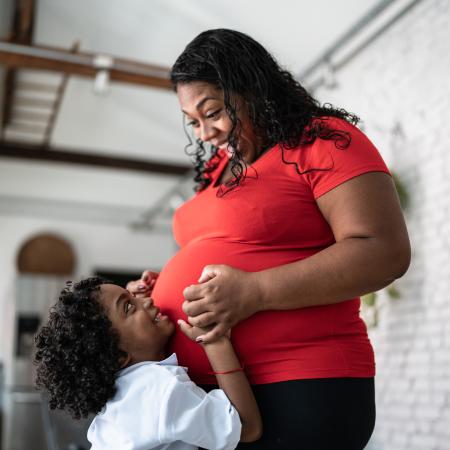What to expect
If you are eligible and choose to join this study, the visit schedule will vary depending on whether you are pregnant. The research team will explain more about what will happen during the study, including potential benefits and risks, and answer any questions you may have. Participation is completely voluntary, and you can leave the study at any time.
Pregnant Participants and Their Babies
- You will receive 1 dose of the RSV vaccine or placebo during weeks 32-36 of your pregnancy. A placebo looks like the study vaccine but has no active ingredients.
- After receiving your vaccination, you will continue in the study until about 6 months after your baby is born. You will have about 4-5 visits, and your baby will have up to 4 visits.
- We know nothing is more important to you as a parent than your baby’s wellbeing. Your health and your baby’s health will be carefully monitored throughout the study.
Non-Pregnant Participants
- You will have a blood sample collected at the clinic to check how many RSV antibodies you have from your prior vaccination.
- The study team will also call you a couple of days after your visit to check on your health.




